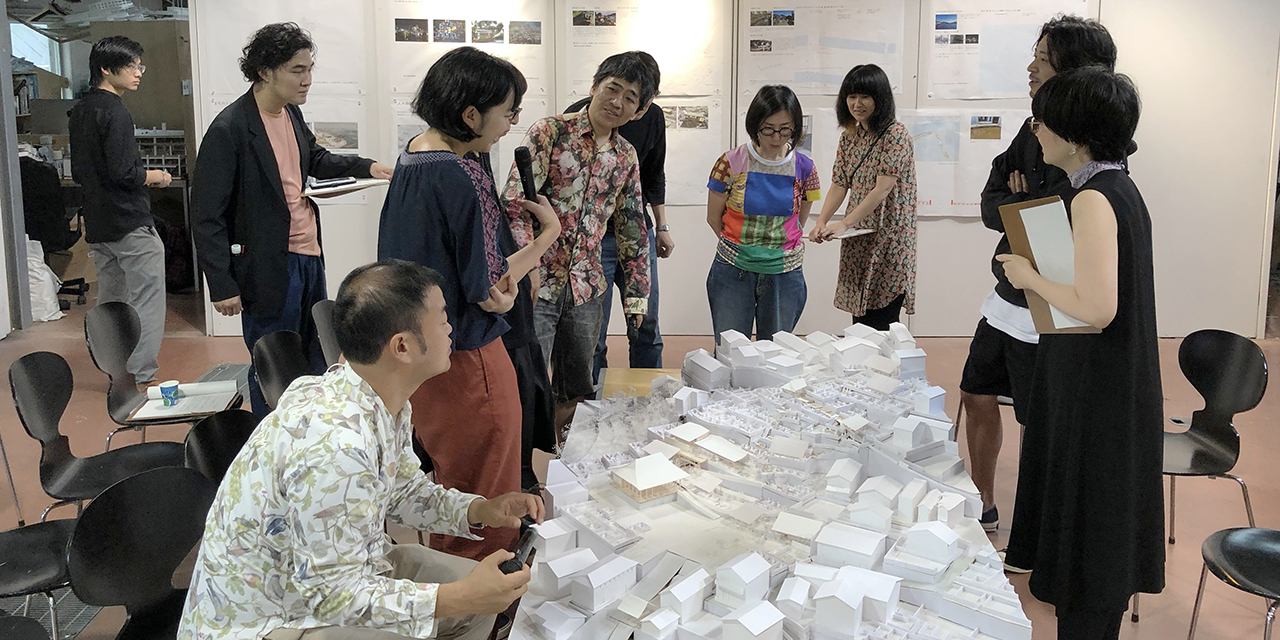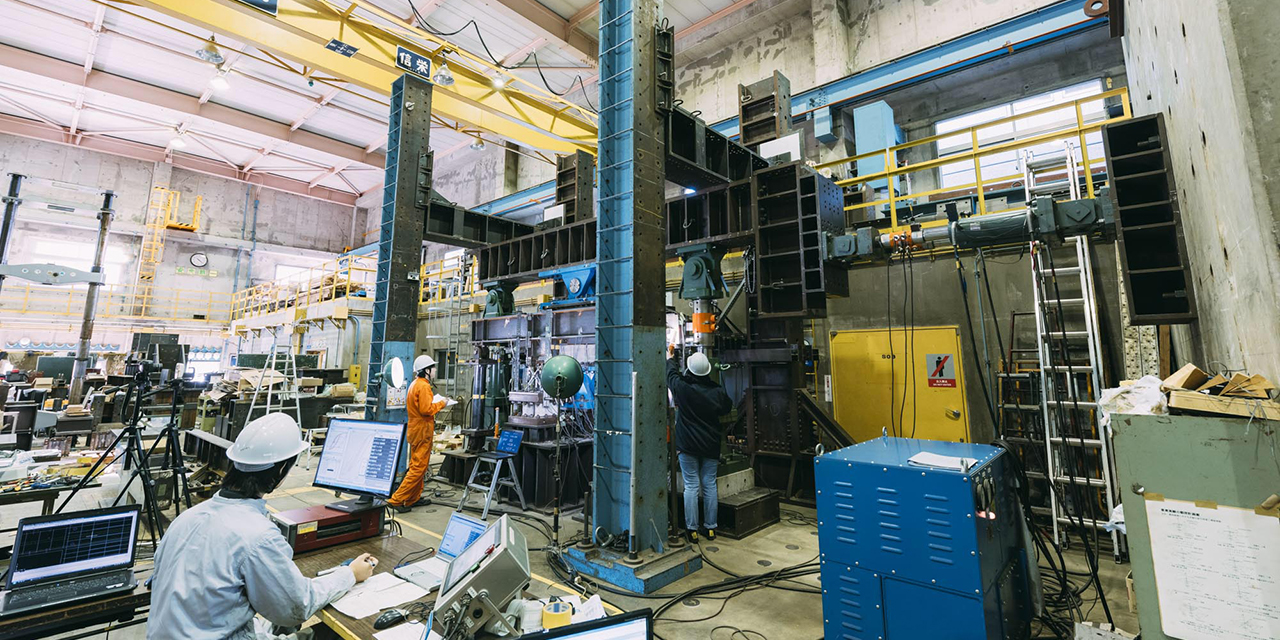

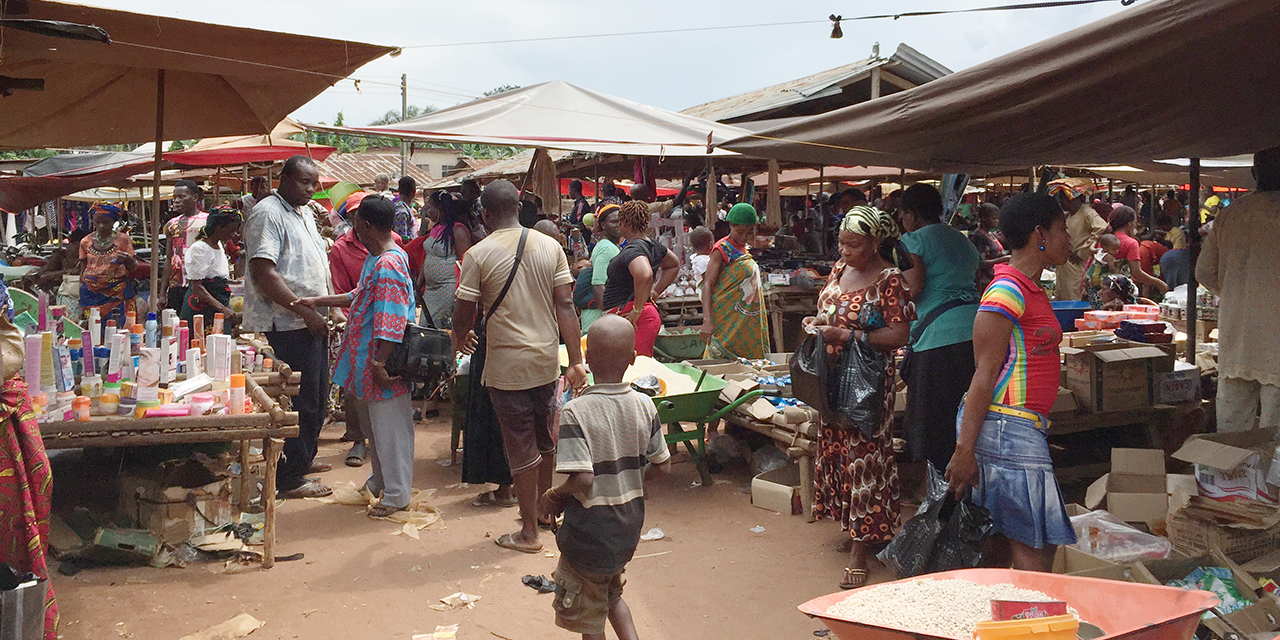

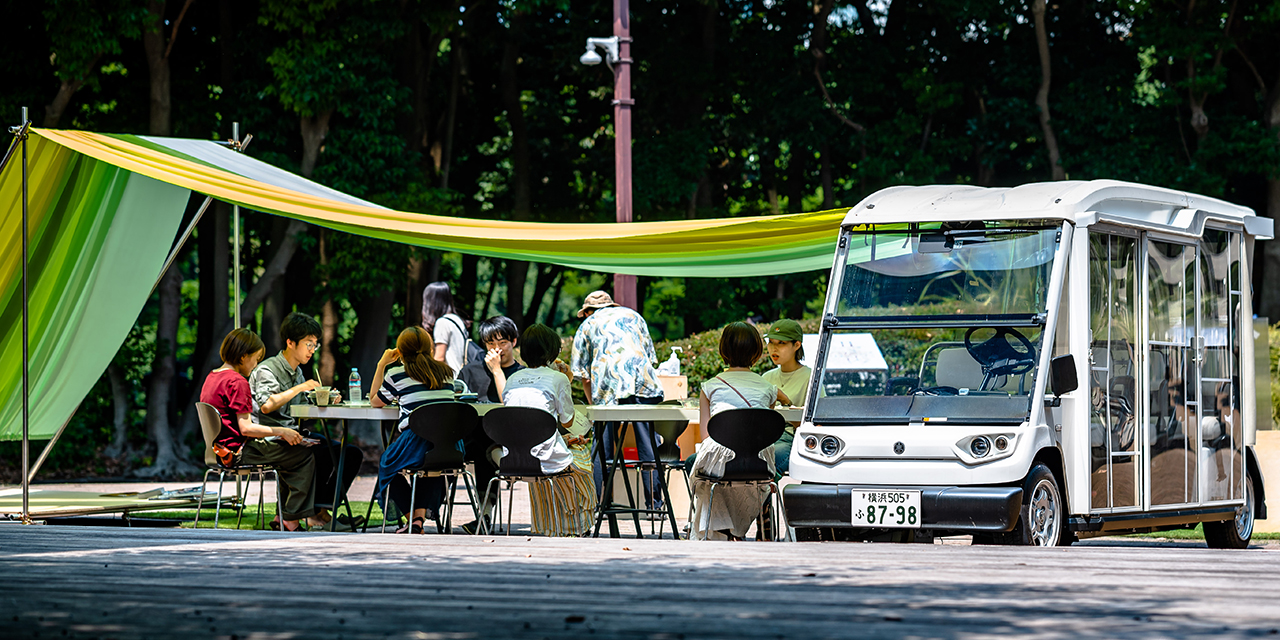
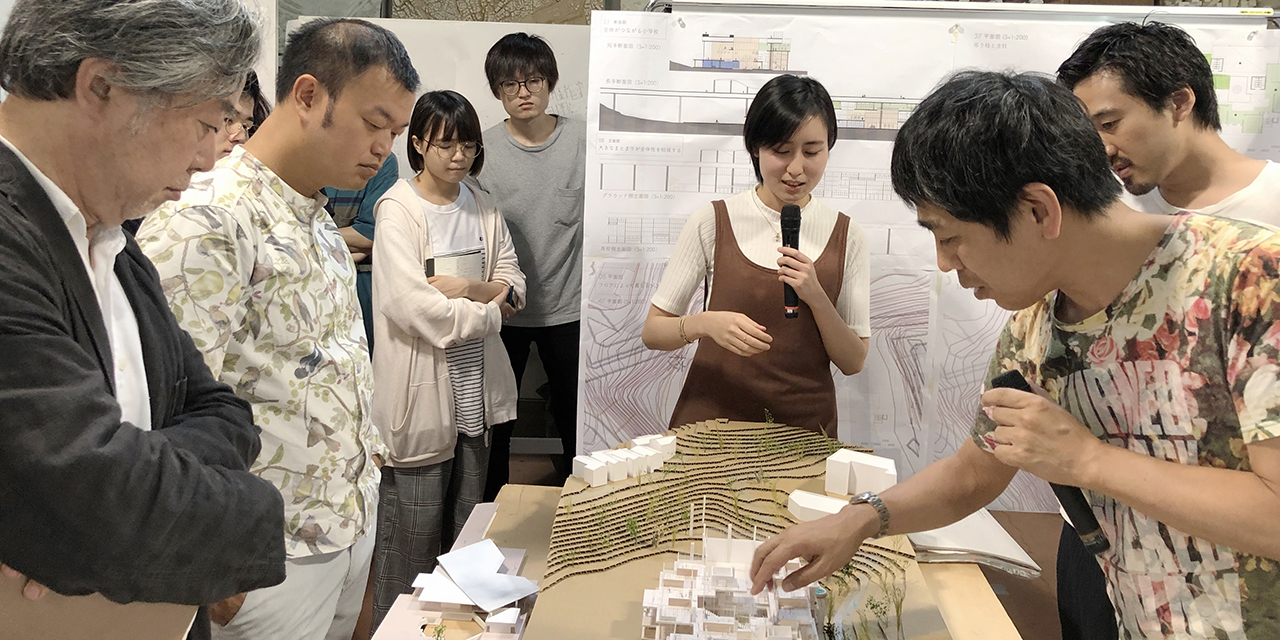
Appealing about “Graduate School / Faculty of Urban Innovation (IUI)”
In April 2011, Yokohama National University, which aims to be an international focal point of practical scholarship, established a new Graduate School “Graduate School / Faculty of Urban Innovation (IUI)” with “City” as its theme. This is Japan’s first Graduate School, where graduate school students specializing in architecture, art, civil engineering, international community, etc. eventually cooperate in the area of “City” while deepening the quest for their respective specializations.
IUI was established because “city” is the major challenge that mankind must address in the 21st century, such as: the worsening problems of environment and energy, due to the enormous growth of urban area; turmoil in the political, economic, and cultural values in cities around the world; problems posed by aging population, declining birth rate, and excessive computerization; exodus of population and activities from small and medium-sized cities, and resultant reduction of the city itself; and the problems of quantitative and qualitative fulfilment of livelihood and social infrastructure posed by rapid economic growth and changes in industrial structure of emerging and developing countries. We face the various challenges concerning the city, and are consequently required to achieve innovation of a city that meets these challenges.
Against this backdrop, IUI fosters growth of advanced professionals having practical skills in both, the fields such as architecture and building science and civil engineering that form the structural side (or the hardware) of the city, and fields such as humanities, social sciences, International community and culture / art that comprise the non-structural side (or the software) of the city. To that end, we provide a multifaceted research environment that facilitates cross-sectorial study of both the fields (mainly in Master’s Program). And finally, we want to be an incubator for the globally competitive next generation of leaders having the ability to take a variety of approaches in regard to the theme of urban innovation (mainly in Doctoral Program).
Message from the Dean
The Institute of Urban Innovation and the Graduate School of Urban Innovation were established in April 2011 with the aim of developing education and research to address the diverse challenges faced by cities, using the metropolitan area of Yokohama and Kanagawa as their primary field. Guided by the idea of “global–local” perspectives and the integration of the humanities and sciences, the Institute builds upon the foundations of the humanities, social sciences, architecture and civil engineering. To achieve this idea, the Master’s Program is organized into two interdisciplinary majors (Department of Architecture and Urban Culture, and Department of Infrastructure and Urban Society), while the Doctoral Program consists of a single major (Department of Urban Innovation). Research related to the city—such as architecture, urban culture, infrastructure, and symbiotic societies—is integrated and synthesized from the perspectives of sustainability and creativity. The Master’s Program, in particular, aims to educate highly specialized professionals capable of generating diverse forms of innovation within cities and contributing to their autonomous and continuous development. The Doctoral Program seeks to cultivate individuals who can become leaders with global and multifaceted perspectives on urban innovation.
Today, cities face numerous urgent issues and crises, including overpopulation, environmental problems, natural disasters, energy challenges, declining birthrates and aging populations, and poverty. Furthermore, global political turmoil has created divisions between nations and peoples, leading to intense conflicts in many regions. This can be seen as a direct denial of globalization, which has long been supported by innovation. At the same time, despite expectations that recent developments in ICT and AI will accelerate globalization, the lack of mutual understanding—exemplified by struggles over technological supremacy—has in fact contributed to further divisions worldwide.
Confronting such an era, the Institute and Graduate School of Urban Innovation strive to anticipate and respond to societal trends from the perspectives of sustainability and creativity, addressing issues from both the “soft” and “hard” dimensions. Through this approach, we aim to further advance research and education that contribute to the creation of global–local innovation, with the ultimate goal of realizing a more prosperous society.
Hiroshi Katsuchi, Dean of the Institute of Urban Innovation
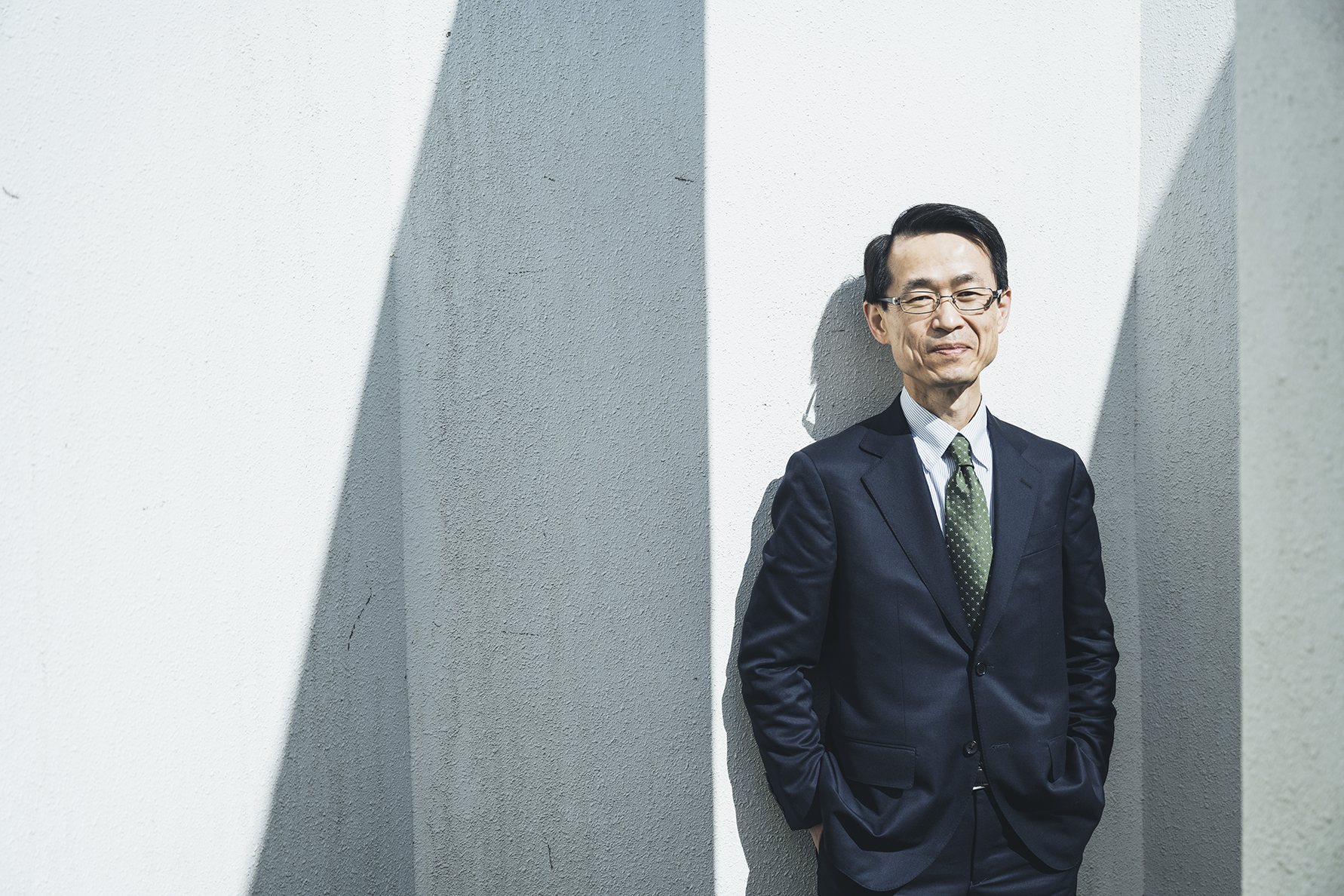
About the Institution of Urban Innovation (IUI)
The Institute of Urban Innovation (IUI) was established because cities are the source of major issues that humankind must address in the 21st century. For example, environmental and energy problems have been aggravated as urban areas became enormous. Political, economic, and cultural values in cities around the world have been thrown into confusion. The aging population, declining birthrate, and excessive informatization in cities have created a range of new problems. At the same time, there has been an exodus in populations and activities from small- and medium-sized cities, further reducing their size and systems. In emerging and developing countries, rapid economic growth and changes in the industrial structure have caused problems regarding the quantitative and qualitative sufficiency of social and living infrastructures. Frequent major earthquakes, climate change, and pandemics such as Covid-19 have made it necessary to fundamentally rethink our ideas about what a city should be like.
The city has been a platform for nurturing human civilization. All forms of the arts, including music, poetry, literature, theater, dance, painting, photography, film, sculpture, and architecture, have been integral parts of the city since ancient times.
In addition, subcultures, including anime, pop music, and manga, have grown deeply rooted in the urban environment. To fundamentally reframe the arts and cultures through their relationship to the city leads us to create a new form of art or culture.
The city forces us face a variety of challenges, and innovations in research and practice are necessary to cope with these challenges.
Against this backdrop, the IUI develops highly skilled professionals both in fields dealing with the tangible, such as architecture and civil engineering, and the intangible, such as humanities, social sciences, international society, cultures, and arts. For this purpose, the institute provide a multifaceted research environment in which students, especially those in the master’s program, can pursue interdisciplinary studies across both kinds of fields. Our ultimate goal, especially for the doctoral course, is to develop next-generation leaders who have the ability to implement diverse approaches to create urban innovations on the global stage.
Features of the IUI’s Education Programs
Education for Interdisciplinary Research Practice That Integrates Ideas in Humanities and Sciences
The Institute of Urban Innovation offers a number of opportunities for cross-disciplinary dialogue and learning, so that students with different academic backgrounds can consider the city together.
It is important for them to develop their own research by taking an interest in other research fields even while focusing on the area of specialization. With a new perspective obtained through such interdisciplinary work, students are able to deepen their own research. This interdisciplinary research practice and attitude serves as the most important intellectual base from which to consider today’s ever-changing city and its diverse values.
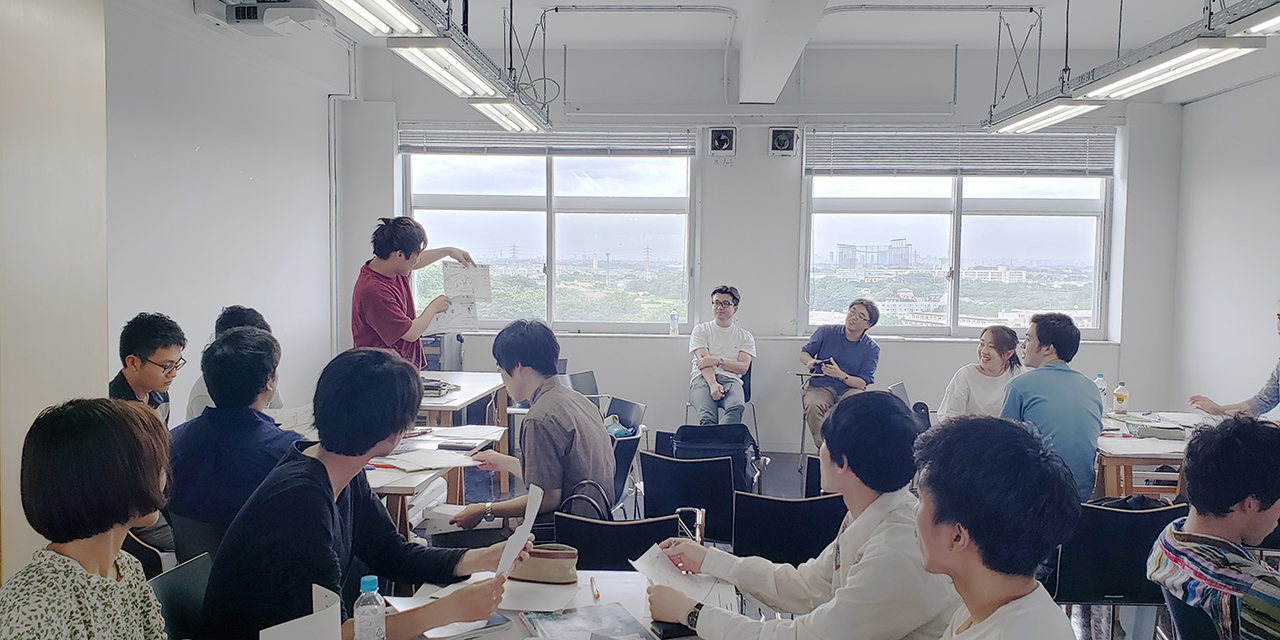
Education for International Urban Studies
At the IUI, students are exposed to a variety of international discussions on cities.
In their research, students redefine what the city is from a broader perspective and deepen their arguments by incorporating results from their studies, discussing a range of topics such as the way our infrastructure should be managed and maintained as the threat of natural disasters continue to rise; interactive planning methods for development assistance; the movements of people seeking a place to exist, when the idea of nationality is more fluid in international cities; community revitalization through art, Riken Yamamoto’s concept of “Local Community Area;” new kinds of art that deepen our understanding about the earth and our bodies as the bases of the city; research on favelas and slums, and organic architecture that evokes lively activities by local people living in and around it.
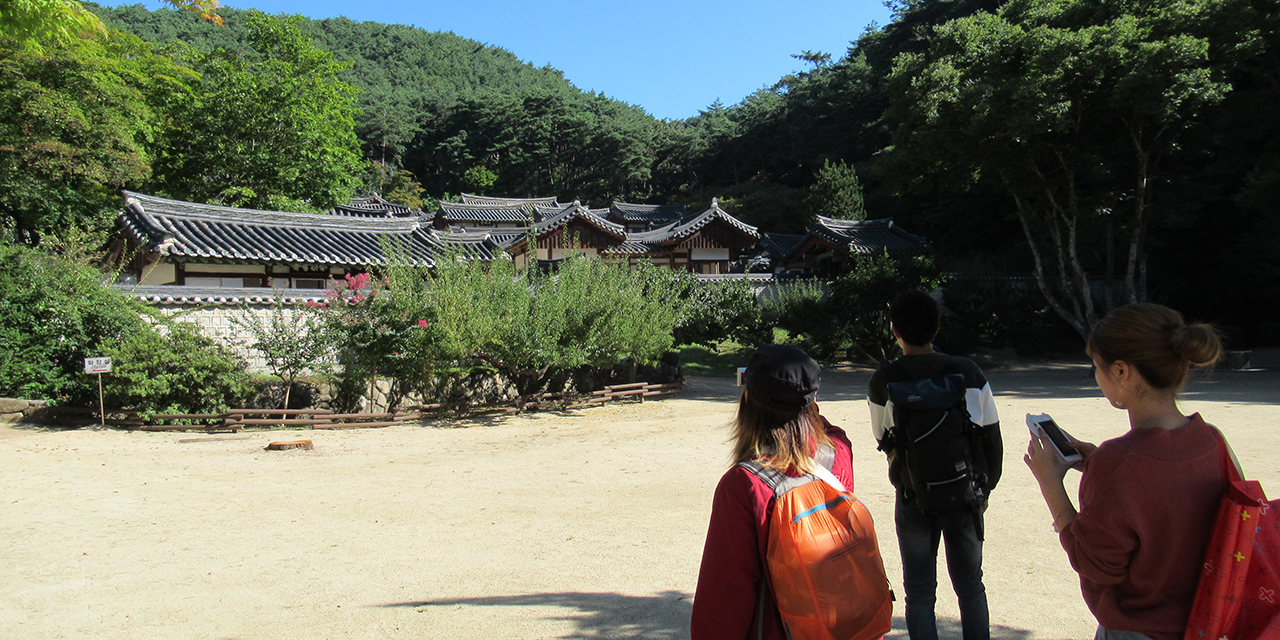
Practical Education Programs in Small Groups
Every course in the Institute of Urban Innovation places lab work, fieldwork, and training in small groups at the center of its education.
The program is designed to focus on case studies and coursework with an aim to develop professionals with practical skills. This corresponds to “the policy for education at graduate schools in the new era” formulated by the Central Council for Education to create “a structured curriculum for students to develop the ability to apply the theoretical knowledge they have acquired in a practical way.”
To facilitate the enrollment of students with diverse backgrounds in the programs, we offer customized advice about their choice of courses based on their academic backgrounds and interests. In addition, we offer a range of practical courses to help students develop their career after graduation. The institute has established a clear educational structure from enrollment to graduation.
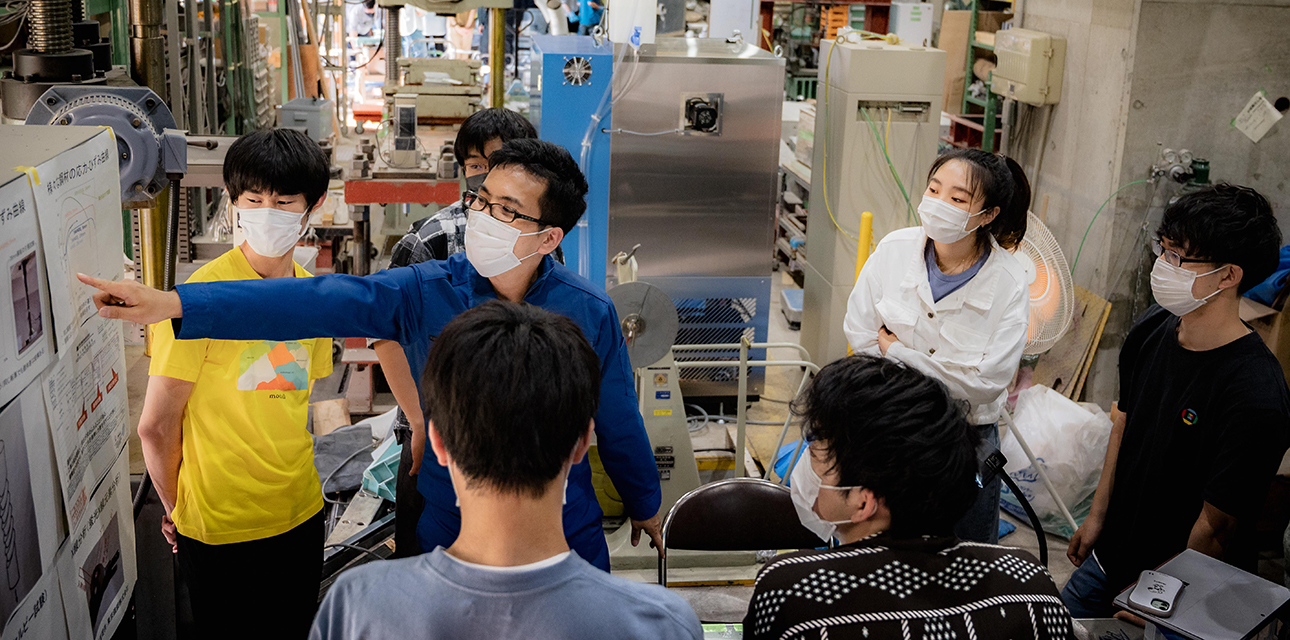
Studio Education System
The Institute of Urban Innovation offers not only classroom lecture courses but also studio work where students collaborate with each other in discussions, research, and creative activities.
The IUI’s studio education system is unique in that it features small learning units and an interactive environment to facilitate advanced, practical education, in which fellow students and teachers critique each student’s work.
In addition, the school’s studio education system with a small number of students, along with research labs, encourages students to conduct novel interdisciplinary research.
The Yokohama Graduate School of Architecture (Y-GSA), in particular, has an innovative, reformed organization in which studios are its basic research units. The school received the Education Award of the Architectural Institute of Japan as a new model for architectural education.
